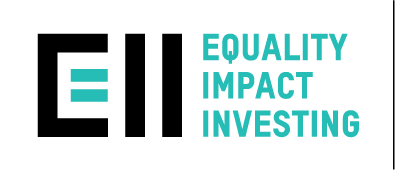Can funders tackle the root causes of inequalities and systemic change?
By Paulina Kowalke, Social Tech Trust Programme Manager and Chris Blues, Social Tech Trust Programmes Director
Over the last 6 months we have been holding some key questions – how can the Social Tech Trust, as an impact investor, identify and support ventures that truly foster equality transformation? Is it possible to invest in ventures that aim to tackle the root causes of inequalities and drive systemic change?
Impact investing is becoming more established, and we know that it has the capability to drive change and influence systems. We also know that inequalities are getting worse across society and that the lack of equality is a thread that underpins a lot of social and environmental challenges. Perhaps, by intentionally backing ventures that foster equality transformation, investment might be able to step up to the complex and intersectional challenges we face.
To explore this topic, we have carried out a collective enquiry and brought together key practitioners across multiple sectors: systems change, equality transformation, impact investing, human rights and social entrepreneurship. This project was carried out in partnership with Equality Impact Investing Project, Connect Fund and nine social tech ventures.
If you wish to explore how impact investors can move towards solving deep-rooted inequalities through backing early-stage ventures, please read on.
What did we do?
Since 2020, our lives have been increasing dominated by the three “C’s”: climate, covid and conflict. These upheavals are an invitation to question the assumptions underlying our own work and do things differently. We have a momentous opportunity to build a better future – a more resilient, more regenerative, more equal future. At Social Tech Trust we see technology as a powerful force in realising that opportunity and to date we have backed over 300 ventures, investing more than £30 million into ventures that scale impact on the foundational principle of fostering equality for underserved and marginalised people.
We are increasingly aware that the current system is flawed and that its dynamics recreate and exacerbate inequalities. There are many different types of inequalities but what connects them is that they are complex and multifaceted.
Through our investments we seek to move beyond solely optimising within the current system and move towards nurturing ventures that have the potential to tackle issues at their root cause, work at the multiple levels needed for systems change, and break the negative cycle of inequalities many people face. Ventures play a role in contributing to system-wide shifts through both ‘what’ the venture does (i.e. their products and services) and ‘how’ they operate (i.e. their practices, processes and culture) – we have created a tool that outlines key characteristics and practices of ventures with the potential to foster equality transformation.
How did we do it?
Working in partnership, we took a consultative approach and aimed to hold our assumptions lightly. We ran a set of focus workshops and one to one venture conversations to translate equality transformation strategy into practice, with the aim to ensure that our insights are informed by venture’s day-to-day realities and are applicable to real life scenarios. We set out to:
create something useful and practical for impact investors – a tool that can help identify ventures that foster equality transformative potential and help make informed decisions when carrying out due diligence on seed-stage ventures.
ensure the consultation process was inclusive and empowering for the ventures – to bring diverse perspectives, move away from extractive behaviour and ensure we challenged any potential affinity bias. Quite simply, we desired to learn something new and be open for unexpected outcomes to arise.
We selected nine diverse ventures that work across industries, geographic markets, technologies, and equality contexts. The nine ventures we worked with were:
Mind of My Own – Creating accessible apps that advance universal children’s rights
On our Radar – Amplifying stories of marginalised communities for social change
Rights DD – Providing modern slavery risk due diligence technology
AutonoMe – Delivering a virtual support provider designed to improve the lives of people with learning disabilities
CityMaaS – Making the world accessible, online and offline for Disabled people
Helsa – Improving mental health and wellbeing in the LGBTQ+ community, as well as other minority communities
Good Boost – Providing affordable and accessible therapeutic exercise programmes, through cutting-edge technology
EduKit – Empowering each child to access relevant support before issues escalate
SEO London – Preparing talented students from underserved and underrepresented backgrounds for career success
What did we learn?
We identified four characteristics and five practices that helped us discern ventures that foster equality transformative potential. We used them to build a tool to help impact investors identify seed stage ventures that have the potential to foster equality transformation.
Join us on 6 December 10am for a STT & EIIP Roundtable: How can social investors tackle the root causes of inequality? Here we will share and discuss the tool and our learnings. If you are interested in attending the event, please contact us at EIIP or Social Tech Trust.
